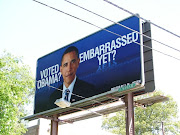By Shaun Waterman
The Washington Times
Like it or not — and many in the Obama administration don't — Real ID is coming to a driver's license near you.
Having failed to get Congress to revise the tough new security rules for state-issued licenses in the Real ID Act, the Department of Homeland Security says it is working out how to implement the law.
But critics fear Homeland Security Secretary Janet Napolitano plans to gut the intent of the legislation's authors.
There is broad agreement among those following the issue on Capitol Hill and in statehouses across the country that Pass ID, the legislative alternative to Real ID that the Obama administration was pushing last year, is dead in the water.
"Pass ID is not moving forward," David Quam, director of federal relations for the National Governors Association, told The Washington Times.
"Although [Homeland Security] is still working with Congress on a comprehensive solution that allows cost savings and flexibility to the states, we are obligated to continue moving ahead with efforts to improve the standards for state-issued driver's licenses and identification under the REAL ID framework pending any legislative changes by Congress," Homeland Security spokeswoman Amy Kudwa told The Times in an e-mail.
The Real ID Act grew out of a recommendation from the Sept. 11 commission that driver's licenses needed to be more secure and harder to obtain for terrorists and other malefactors. Despite being in the country illegally, all but one of the 19 hijackers on Sept. 11 had driver's licenses or other state-issued ID cards that they used to rent cars and apartments, and ultimately to board the planes they commandeered.
Several terrorist plots foiled in the United States since then have been attempted by people who also had managed to get driver's licenses, despite having overstayed their visas.
"People understand that 99 percent of the security at airports, buildings, stadiums and other events relies on visual verification of driver's licenses," said Brian Zimmer, president of the Coalition for a Secure Driver's License, a nonprofit that advocates for fraud-proof licenses. "That's why there has always been broad public support for stronger identity security."
To comply with the Real ID Act, states must check that license applicants are in the country legally, ensure they have valid Social Security numbers and verify the authenticity of documents such as birth certificates, among other requirements. Applicants in the United States on visas can be issued licenses, but those licenses will expire with the visas. Full Story

Custom Search
News
Thursday, August 05, 2010
Subscribe to:
Post Comments (Atom)










No comments:
Post a Comment